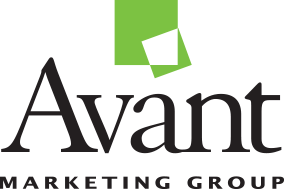Years ago, I was invited to observe a focus group with North Carolina soybean growers. The sponsor, a leading marketer, decided to contract the moderation to an outside researcher.
As you might expect, the farmer panel was right out of central casting. Attendees in dusty overalls trickled in, chatting about the weather, and enjoying the sweet tea and chocolate chip cookies provided. Most had come in right off their fields at the end of the workday.
Then, in walks the moderator… dressed to the nines in a well-tailored business suit, matching shoes, all complimented with a striking shade of red lipstick. In any given board room this outfit would project professionalism and sophistication. However, in this rural North Carolina focus group, she looked as if she was from a different planet.
The moderator introduced herself and began her warm-up as follows:
“Gentlemen, I would like to get to know you a little better before we begin the discussion. Let’s go around the table and tell me what you do in your spare time.”
One participant spoke up, “Lady, we are farmers! We don’t have any spare time!”
Noting the resistance, the moderator then asked, “Well if you did have some spare time, what would you do?”
Another participant responded, “Farm more.”
Needless to say, the group didn’t get off to a good start, and the moderator continued to have difficulty throughout the session. She was not able to connect with her participants or establish an environment where they felt comfortable to open up about their farming practices. In this situation, it is extremely difficult to get useful comments and feedback from a focus group.
Focus Group Quality Control
This is a good example of how focus groups can go bad very quickly if not properly prepared and executed.
When conducting focus groups, there are three key areas that determine the quality of the research:
- Quality of the Participants
- Quality of the Discussion Guide
- Quality of the Moderator
Quality of the Participants
The first step to any research project is defining the target audience. For farmer groups, the profile normally includes type of farm (crops or livestock), farm size or GFI, age, location, and any key farming practices related to the discussion topic. Additional screening questions can help to avoid recruiting individuals who may hinder the discussion.
Since most focus groups are now conducted virtually, technical issues should be addressed with participants prior to the group. Recruiters need to explain the process and ensure that there are no connectivity problems or difficulty in signing-in to the meeting room site.
Finally, participants should be screened with an articulation question allowing the recruiter to gauge the participant’s fluency and understanding of the study. A well-structured articulation question will engage the participant, so they start thinking about the topic before the focus group even begins.
Quality of the Discussion Guide
The Discussion Guide should always state the objectives of the focus group. It is also important to recap your goals and current level of understanding, defining what you already know, what you don’t know, and what exactly you are trying to learn.
Typically, a focus group is scheduled for 90 minutes. However, keep in mind that the initial 15 minutes of any group should be allocated for warm-up and general discussion prior to getting into the research content.
Oftentimes, the most important insights from a focus group are uncovered when a skilled moderator follows up on an unexpected comment. Successful discussion guides enable moderators to probe into important topics that are raised during the discussion. While your discussion guide may be structured with specific questions, it is best viewed as an outline of topics or exercises.
Quality of the Moderator
You can have an excellent discussion guide and quality participants for your focus group, but without an effective moderator those factors alone will not guarantee you a productive group. Contrary to popular belief, a good moderator is not a domineering captain of the discussion. Productive groups occur when the moderator serves as a guide, leading participants to an active conversation with their peers.
Despite this, the moderator must still ensure that all topical points are covered based on the discussion guide and understand where to probe if the discussion exposes additional information that is important to the client. All of this must be accomplished while also balancing the pace of the discussion for each topic, ensuring that all needed points are covered within the stated schedule.
Balancing these requirements is a skill that few people truly understand and can only be developed with experience.
At a minimum, a good moderator will have a solid understanding of their participants and the topics to be covered. To be truly successful, they will have to do their homework and should also take the responsibility of drafting the discussion guide for client approval.
Finally, it cannot be emphasized enough that rapport is key. No level of background research can replace a moderator’s ability to put participants and ease when discussing their business and livelihood. Simply put, personality matters – often, the success of a focus group hinges on whether the moderator connects to your participants.
If you need any assistance in planning or executing your next focus group, contact the author of this post, Mark Vogel – Senior Partner: [email protected].
